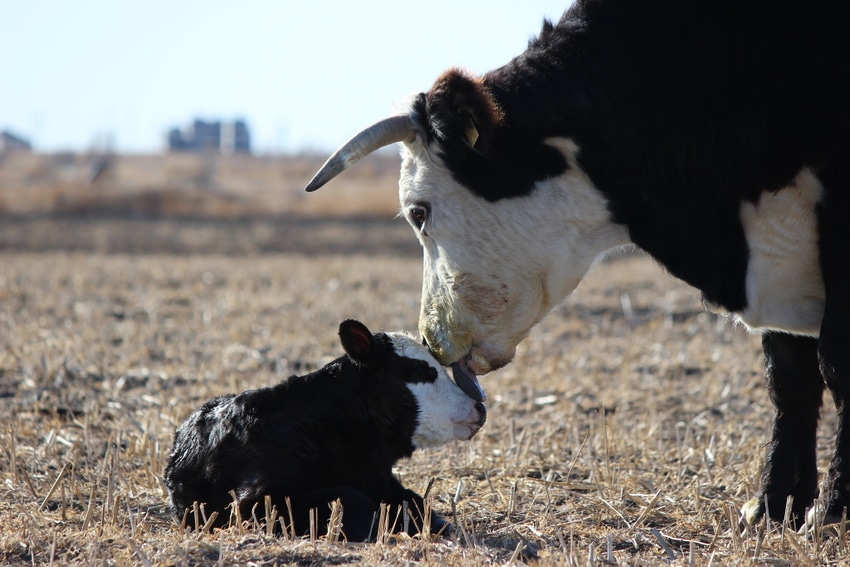Bull's fertility may change following tough winter.
April 24, 2019

According to Kansas State University Extension beef veterinarian A.J. Tarpoff, spring-like weather means cow/calf producers need to get bulls ready for the upcoming breeding season.
“We need to make sure we check these bulls, and if they’re not fit for the breeding season, we still have some time for our producers to go purchase another bull,” Tarpoff said.
He said producers should contact their local veterinarian and schedule a breeding soundness exam, which can test for the overall fitness of the bull.
“This year is a little bit peculiar because we have actually had a real winter,” Tarpoff said. “We need to make sure our bulls are fit coming into the breeding season. This year, I’m concerned a little bit more on semen quality and adequate motility.
“We have to remember that even though we’ve checked fertility on these bulls the last several years, things can happen. These semen checks are a glimpse at whether they’re viable today,” he added.
Tarpoff suggested that producers conduct a breeding soundness exam on their bulls at least 30-60 days before the breeding season, based on when they expect to calve and market those animals. If the veterinarian has concerns with a given bull, there is still time for it to possibly recover and be retested.
The soundness exam should include, according to Tarpoff, a physical exam as well as a look at the bull’s body condition.
“Keep in mind that these bulls are athletes,” he said. “They can actually lose two body condition scores during the breeding season. So, we want to make sure that we have adequate fat cover going into the breeding season to make sure they have the energy stores for their work ahead.”
The exam also is an opportunity to test for certain diseases, such as trichomoniasis, bovine viral diarrhea virus, anaplasmosis and others, he added.
“This is the insurance for the cow/calf operation, insurance for reproduction, insurance for fertility,” Tarpoff said. “These are all very important aspects for the cow/calf producer.”
Source: Kansas State University, which is solely responsible for the information provided and is wholly owned by the source. Informa Business Media and all its subsidiaries are not responsible for any of the content contained in this information asset.
You May Also Like


.png?width=300&auto=webp&quality=80&disable=upscale)
